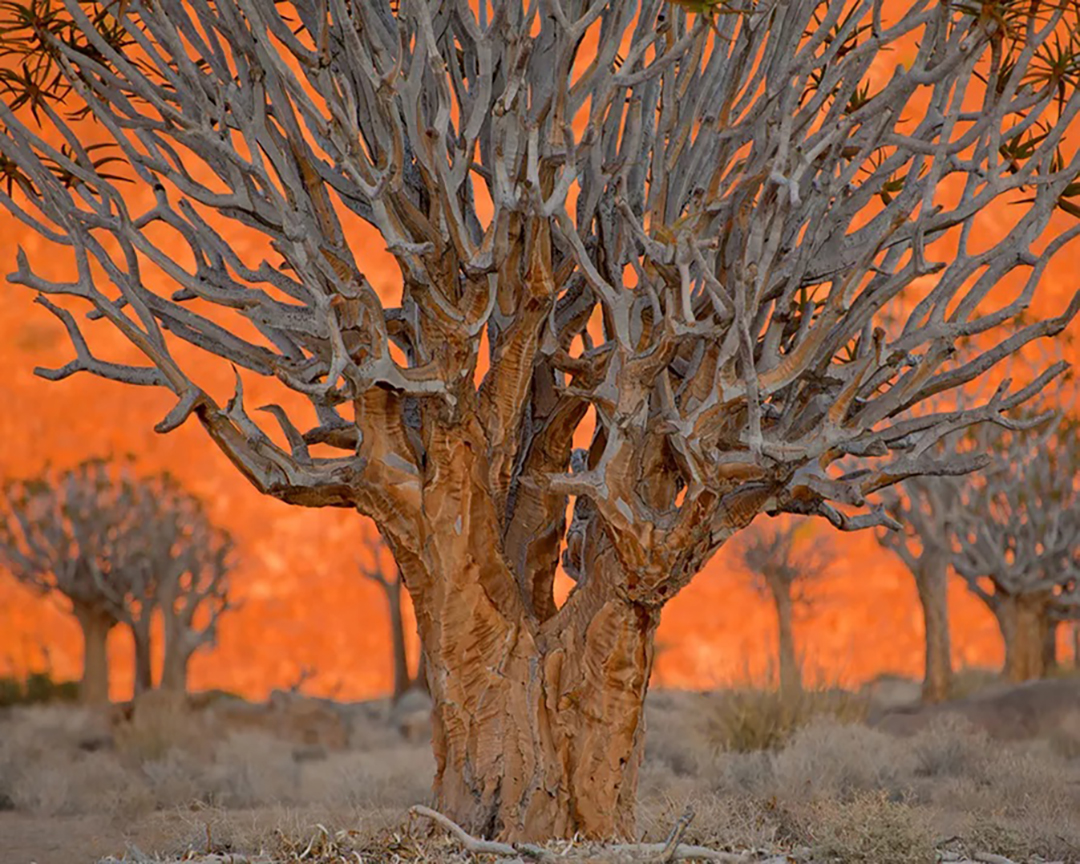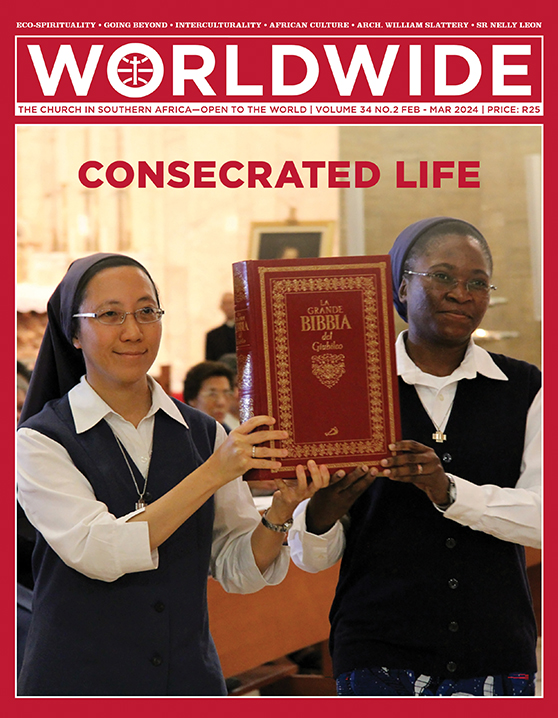
CONSECRATED LIFE
The painting on the front cover entitled “The disciples of Emmaus” reflects our journey of hope. Jesus not only walks with us, but gives us the wisdom to perform our ministries and opens our eyes to see Him in the people that we are serving.
WORLD REPORT • ECO-SPIRITUALITY
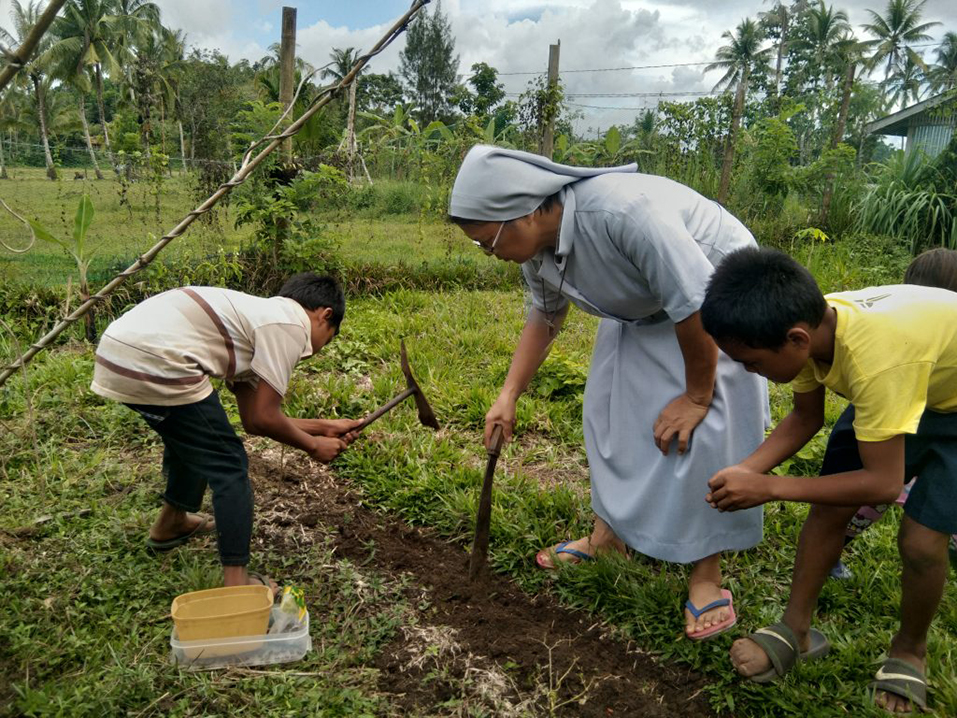
RELIGIOUS LIFE AND THE CARE FOR THE COMMON HOME
Members of religious congregations and consecrated life institutes can become spearheads in combating global warming and in the care for the common home. An eco-spirituality and a liturgy which is attentive to the new understanding of creation may contribute to the preservation of life on earth.
BY Fr Sean McDonagh SSC | ECO-THEOLOGIAN, IRELAND
The Second Vatican Council (Vat II) which took place in Rome between 1962 to 1965 brought about major changes in how people lived their Catholic faith. Nothing as transformative had happened within the Catholic Church since the Council of Trent (1545 to 1563). This took place as the Catholic Church responded to the Protestant Reformation. For that reason, it was also called the Counter-Reformation.
During the four years of the Vat II, the bishops reflected on every aspect of Catholic life, including how religious life was lived. In No 2 of the Decree on the adaptation and renewal of religious life (Perfectae Caritatis), the bishops outlined two simultaneous processes which needed to take place in every religious congregation. One involved a return to the original inspiration behind the setting up of the order. The second involved an adjustment by the community to the changed conditions of our times. Understanding the ‘signs of the times’ was a central dimension of Vat II.
The year 2023 was the warmest on record for planet earth.
Biocentric vision of creation
One of the most important achievements of the past few centuries is the great flowering of rational inquiry which has resulted in a better understanding of the natural world around us. This new perspective, which emerged painstakingly from the scientific understanding of the natural world, challenges all human beings, and especially religious people, to move from an anthropocentric (exclusively human-centred) to a biocentric vision of creation. This is why we now speak of earth as the common home for all creatures.
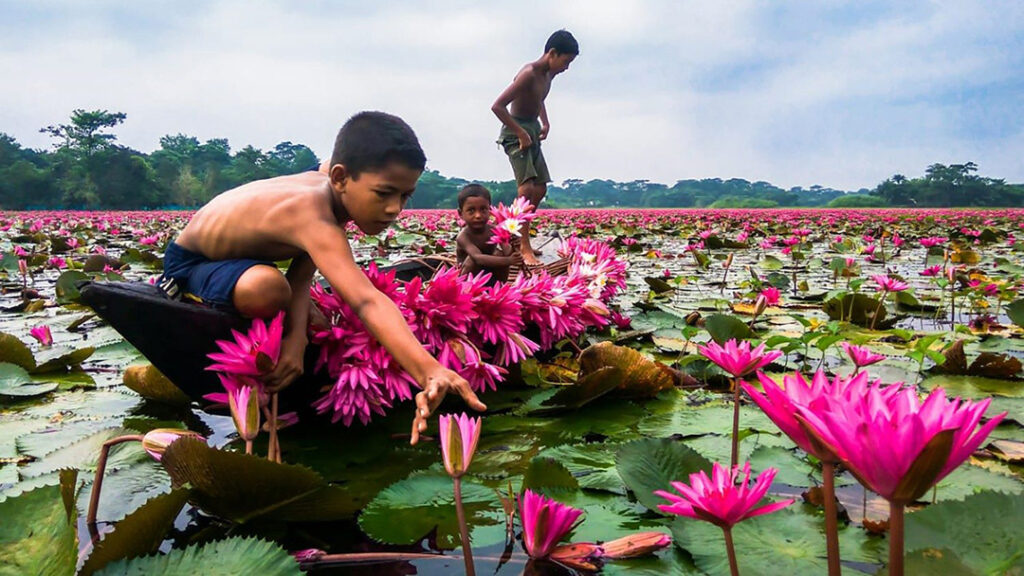
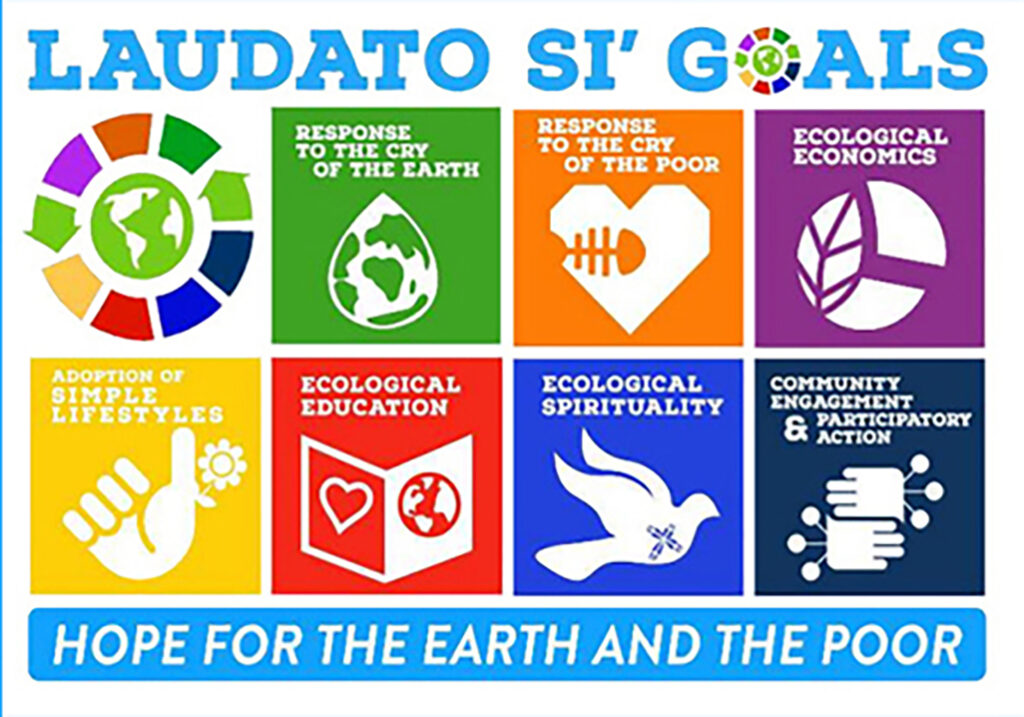
Effects of fossil fuels
During the last two centuries people began to use fossil fuels for industry and transport. They first began using coal and then moved to oil and gas. Unfortunately, these fossil fuels give off carbon dioxide, which warms the planet and creates extreme weather in many places.
The year 2023 was the warmest on record for planet earth. It led to extreme weather conditions in many parts of the world, including droughts, floodings, heatwaves and wildfires which killed many people. 2023 also saw the beginning of the El Niño weather phenomenon which meant that temperatures in many areas during July and August reached up to 1.5⁰ above preindustrial levels in the 19th century.
The destruction of biodiversity is one of the major challenges facing our planet today.
In 1992 the United Nations set up an annual meeting of countries aimed at bringing to an end the use of fossil fuels. The Conferences of the Parties (COP) meeting in Paris in 2015 set the limit of 1.5⁰ above preindustrial levels, to combat climate change.
The most recent COP28 was held in Dubai in the United Arab Emirates (UAE). It seemed strange to convene a COP in an oil-state which has made its money from selling fossil fuel around the world. Sultan Al-Jaber is also the president of both the United Arab Emirates and its national oil company. He was also the president of COP28. Before the meeting it was reported that he and other oil exporting nations had intended to use COP 28 to sell their oil, rather than to move rapidly to establish alternate technologies. Nevertheless, even though it is very late in the day, COP28 has indeed succeeded in moving the world a little closer to tackling the problems associated with climate change.
Biodiversity
The destruction of biodiversity is one of the major challenges facing our planet today. The biggest culprits here are the exploding human numbers and the unsustainable patterns of consumption. Damaging human activity continues to encroach on natural environments, thereby destroying the habitats of countless species. As our numbers increase, cities, infrastructure and cropland grow and merge into each other, fragmenting the remaining habitat and leaving isolated “islands” of natural populations of plants and animals, too small to survive.
We are now living in the timeframe of the 6th largest extinction of countless species. Within a hundred years we as humans could cause the extinction of at least one million species. The last time that such damage was done to the earth was experienced 252 million years ago.
Ecological awareness and religion
I spent seven years studying for the priesthood in Dalgan Park, County Meath in Ireland. I studied philosophy, theology, scripture, canon law and a bit of anthropology. In all those years in the seminary, I never heard a talk on trees, wildflowers, or grasses. The same rings true in every seminary in China, South Africa, Latin America, and the Philippines. It was common belief that the natural world had nothing serious to offer our spiritual lives and wellbeing.
Now however, with a new understanding of ecology and creation, one of the first things we must do is to educate ourselves and to study the natural world, our common home, in our own specific place in the world. We must then introduce the natural world into our liturgies. Many elements of the natural world could be introduced into the Preface of Mass, during our Sunday celebrations of the eucharist, as well as into other liturgies. Pope Francis, in his encyclical Laudato Si’- On Care for Our Common Home (LS 13), challenges us to do all we can to protect our common home.

